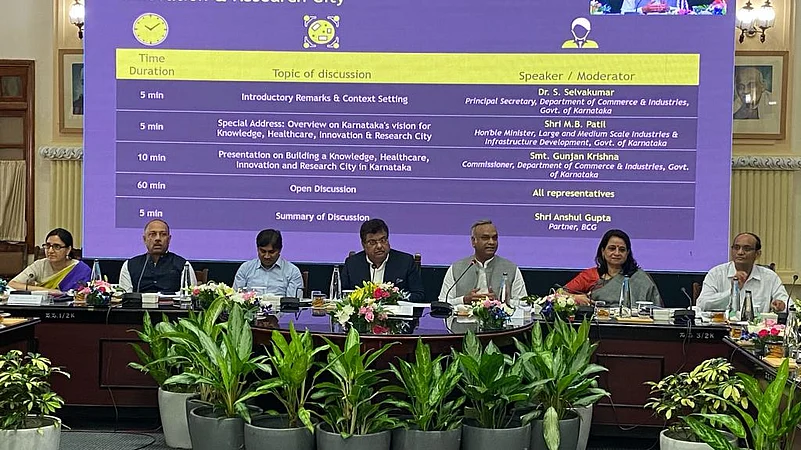The Karnataka government started working on building the Knowledge, Healthcare, Innovation, and Research (KHIR) City near Bengaluru. They are looking to get a Rs 40,000 crore investment and create 80,000 jobs in healthcare, innovation, and knowledge. The project covers 2,000 acres and is being developed in phases within 60 km from Bengaluru.
During the Ideation Session, Shri M B Patil, the minister for large and medium industries and infrastructure development, highlighted the transformative nature of KHIR City, emphasizing collaboration among government, medical institutes, private companies, and academia to create a hub of excellence.
The initiative targeted not only job creation and attracting investments but also aimed to contribute significantly to the state's GDP, with a goal of at least Rs 1 lakh crore. Industry leaders like Kris Gopalakrishnan and Dr. Devi Prasad Shetty provided insights during the session.
Karnataka's existing strengths, including a skilled talent pool and a robust innovation ecosystem, positioned it favorably for KHIR City's development. With over 60% of India's biotech companies and 350 medical device manufacturers in the state, Bengaluru's strategic location was poised to enhance its global standing.
Shri Priyank Kharge, the minister for IT/BT, and S&T, highlighted KHIR City as a unique knowledge center, bringing together innovators from various sectors. The government planned to formulate a dedicated policy to boost medical tourism.
Kris Gopalkrishnan stressed the importance of swift implementation, suggesting the development of essential infrastructure like a metro station before KHIR City took shape. The project drew inspiration from global models like Singapore's Biopolis Cluster and Japan's Kobe Biomedical Innovation Cluster.
The collaboration effort involved flexible participation formats for private companies, ensuring a balanced and sustainable development model. Industry representatives emphasized skill development in the state, particularly focusing on life sciences.




























